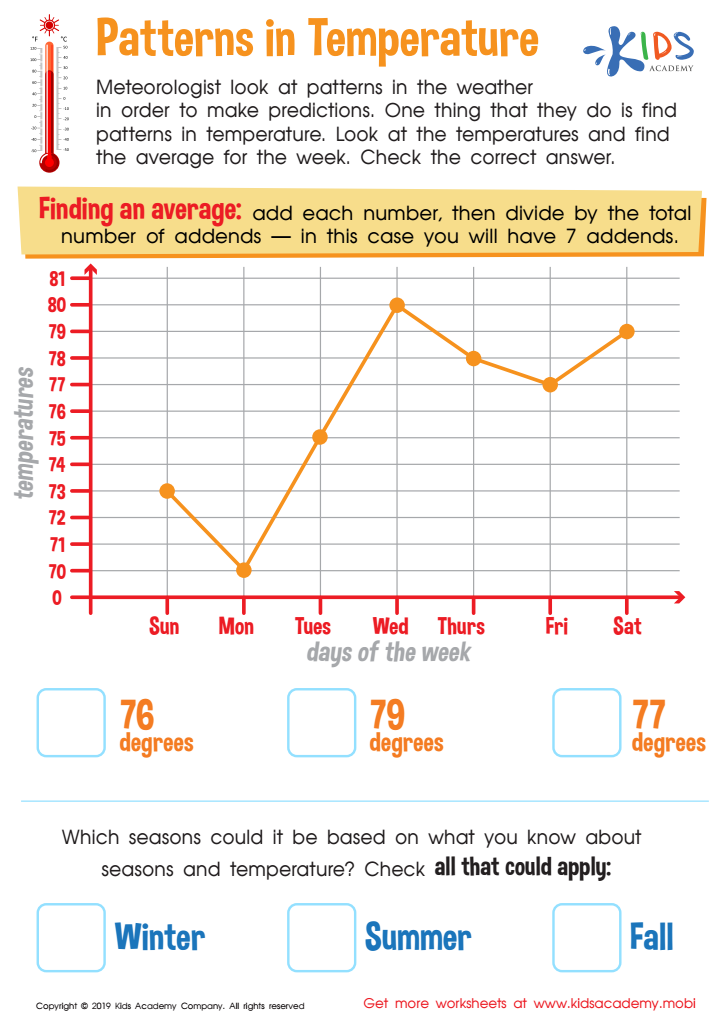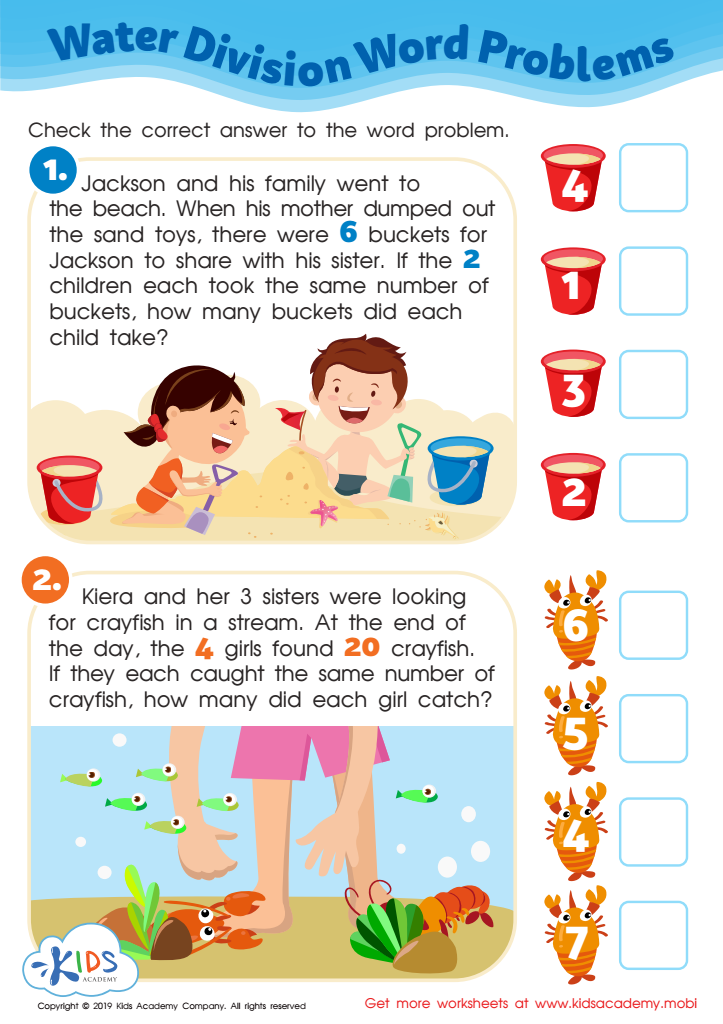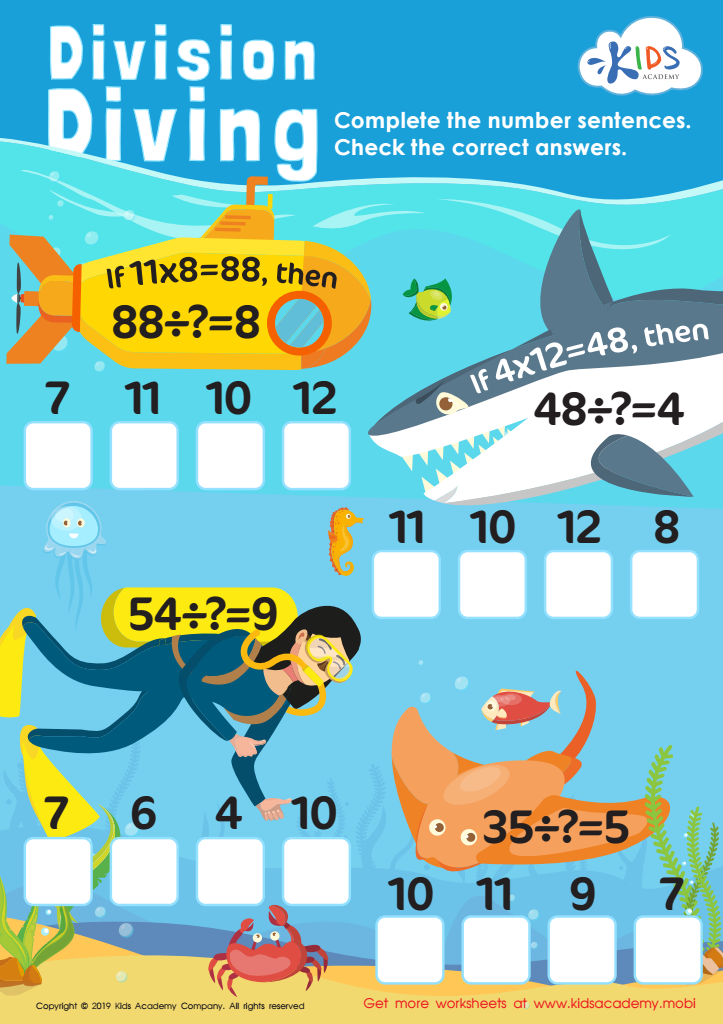Mathematical reasoning Normal Science Worksheets for Ages 7-9
3 filtered results
-
From - To
Boost your child's mathematical reasoning skills with our engaging Normal Science Worksheets designed specifically for ages 7-9. These interactive worksheets combine fun science concepts with essential math practices, helping young learners develop critical thinking and problem-solving abilities. Each worksheet is thoughtfully crafted to challenge students while keeping their interest alive, making learning enjoyable. Ideal for classroom or home use, these resources enable children to explore mathematical reasoning through real-world scientific contexts. Whether it's puzzles, word problems, or hands-on activities, our worksheets provide the perfect balance of education and entertainment. Start fostering a strong foundation in mathematics today!


Patterns in Temperature Worksheet


Water Division Word Problems Worksheet


Division Diving Worksheet
Mathematical reasoning in young children, especially those aged 7-9, is vital for their overall cognitive development and future academic success. During this age, children move from concrete thinking to more abstract reasoning, making it an optimal time for cultivating strong mathematical skills. Teachers and parents should emphasize mathematical reasoning as it helps children develop problem-solving skills and critical thinking abilities.
Engaging in mathematical reasoning tasks encourages children to analyze, interpret, and apply mathematical concepts rather than merely memorize procedures. This depth of understanding fosters perseverance and boosts their confidence in tackling challenges, essential skills as they advance in school. Furthermore, in a rapidly changing world driven by technology and analytics, a strong foundation in mathematics and the ability to reason mathematically prepares children for future opportunities.
In addition, mathematical reasoning contributes to improved performance across other subject areas, as these critical thinking skills can be applicable in science, reading comprehension, and daily life problem-solving. When parents and teachers work together to prioritize mathematical reasoning, they cultivate a generation of thinkers who can approach problems systematically and creatively. This collaboratively designed educational landscape not only benefits individual students but ultimately strengthens society as a whole.
 Assign to My Students
Assign to My Students















